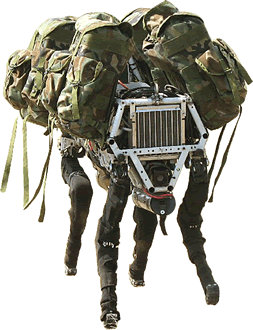 BigDog, the world’s most advanced quadruped robot, is being developed to go anywhere a soldier on foot can go. With a load capacity of 340 pounds, the eerily lifelike robot is on its way to becoming the modern equivalent of a pack mule. Unlike its flesh-and-blood model, however, BigDog is always amenable to human direction. Click here to see him in action.
BigDog, the world’s most advanced quadruped robot, is being developed to go anywhere a soldier on foot can go. With a load capacity of 340 pounds, the eerily lifelike robot is on its way to becoming the modern equivalent of a pack mule. Unlike its flesh-and-blood model, however, BigDog is always amenable to human direction. Click here to see him in action.
Thinking about mules puts me in mind of William Faulkner’s last novel, The Reivers, set in small-town Mississippi in 1905. It’s the story of 11-year-old Lucius Priest whose grandfather owns one of the town’s few automobiles.
When his family attends an out-of-town funeral, Lucius is hoodwinked by roguish livery stable hand Boon Hogganbeck into a trip in Grandfather Priest’s auto, along with Ned McCaslin, another stable hand. During the escapade, they pay dearly to be pulled through Hell Creek bottom by a mercenary farmer and his mule team; trade the auto for a suspect racehorse; and lodge at Miss Reba’s brothel in Memphis.
The adventure culminates in a horse race engineered by Ned, who once owned a mule never beaten in a match race. Ned is confident that he can make the bartered horse a winner because of his success with the mule. His measure of intelligence, which he is inspired to share with Boon, is reminiscent of the comic genius and plumb logic of Mark Twain:
“A mule which will gallop for a half-mile in the single direction elected by its rider even one time becomes a neighborhood legend; one that will do it consistently time after time is an incredible phenomenon,” Ned tells Boon Hogganbeck. “Because, unlike a horse, a mule is far too intelligent to break its heart for glory running around the rim of a mile-long saucer.
“In fact, I rate mules second only to rats in intelligence, the mule followed in order by cats, dogs, and horses last–assuming of course that you accept my definition of intelligence: which is the ability to cope with environment: which means to accept environment yet still retain something of personal liberty.
“The rat of course I rate first. He lives in your house without helping you to buy it or build it or repair it or keep the taxes paid; he eats what you eat without helping you raise or buy it or even haul it into the house; you cannot get rid of him; were he not a cannibal, he would have long since inherited the earth.
“The cat is third, with some of the same qualities but a weaker, punier creature; he neither toils not spins, he is a parasite on you but he does not love you; he would die, cease to exist, vanish from the earth (I mean, in his so-called domestic form) but so far he has not had to.
“There is a fable, Chinese I think, literally I am sure: of a period on earth when the dominant creatures were cats: who after ages of trying to cope with the anguishes of mortality — famine, plague, war injustice, folly, greed — in a word, civilized government — convened a congress of the wisest cat philosophers to see if anything could be done: who after long deliberation agreed that the dilemma, the problems themselves were insoluble and the only practical solution was to give it up, relinquish, abdicate, by selecting from among the lesser creatures a species, race optimistic enough to believe that the mortal predicament could be solved and ignorant enough never to learn better. Which is why the cat lives with you, is completely dependent on you for food and shelter but lifts no paw for you and loves you not; in a word, why your cat looks at you the way it does.
“The dog I rate fourth. He is courageous, faithful, monogamous in his devotion; he is your parasite too: his failure (as compared to the cat) is that he will work for you — I mean, willingly, gladly, ape any trick, no matter how silly, just to please you, for a pat on the head; as sound and first-rate a parasite as any, his failure is that he is a sycophant, believing that he has to show gratitude also; he will debase and violate his own dignity for your amusement; he fawns in return for a kick, he will give his life for you in battle and grieve himself to starvation over your bones.
“The horse I rate last. A creature capable of but one idea at a time, his strongest quality is timidity and fear. He can be tricked and cajoled by a child into breaking his limbs or his heart too in running too far too fast or jumping things too wide or hard or high; he will eat himself to death if not guarded like a baby; if he had only one gram of intelligence of the most backward rate, he would be the rider.
“The mule I rate second. But second only because you can make him work for you. But that too only within his own rigid self-set regulations. He will not permit himself to eat too much. He will draw a wagon or a plow, but he will not run a race. He will not try to jump anything he does not indubitably know beforehand he can jump; he will not enter any place unless he knows of his own knowledge what is on the other side; he will work for you patiently for ten years for the chance to kick you once. In a word, free of the obligations of ancestry and the responsibilities of posterity, he has conquered not only life but death too and hence is immortal; were he to vanish from the earth today, the same chanceful combination which produced him yesterday would produce him a thousand years hence, unaltered, unchanged, incorrigible still within the limitations which he himself had proved and tested; still free, still coping.”
The Reivers, published in 1962, just months before his death, earned Faulkner his second Pulitzer Prize for Fiction. He is one of only three writers to have each won two Pulitzer’s for their novels, including Booth Tarkington anbd John Updike, who died last week at the age of 76.
http://www.bostondynamics.com/content/sec.php?section=BigDog
